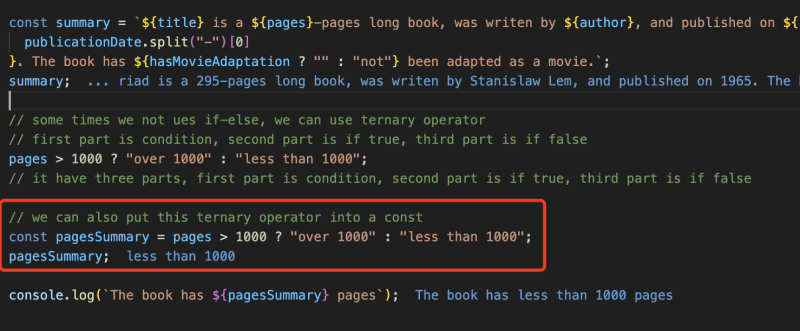This week we continue our React study notes, and this week I've learned two simple but very useful uses: Template Literals & Ternaries Instead of if/else Statements.
Continue to use the book model used in the first two study notes. First, we create a simple summary, in defining an object we can use the Template Literals
`${js or element's own attributes}`
JavaScript can be used inside to achieve the effect we wish to print! Eg:

For example, we want the printed String to determine whether the book object has the property 'hasMovieAdaptation', where we use the judgment
${hasMovieAdaptation ? "(if true)" : "(if false)"}
Now let's take this simple judgment and add a little bit of new conditions, such as for the number of pages to be judged.
pages > 1000 ? "over 1000": "less than 1000";
But every time you need to print when writing such a long judgment is always inconvenient, then we try to define this judgment as an object, like this:
You can see that our log successfully prints out the result of the desired judgment.




Top comments (0)